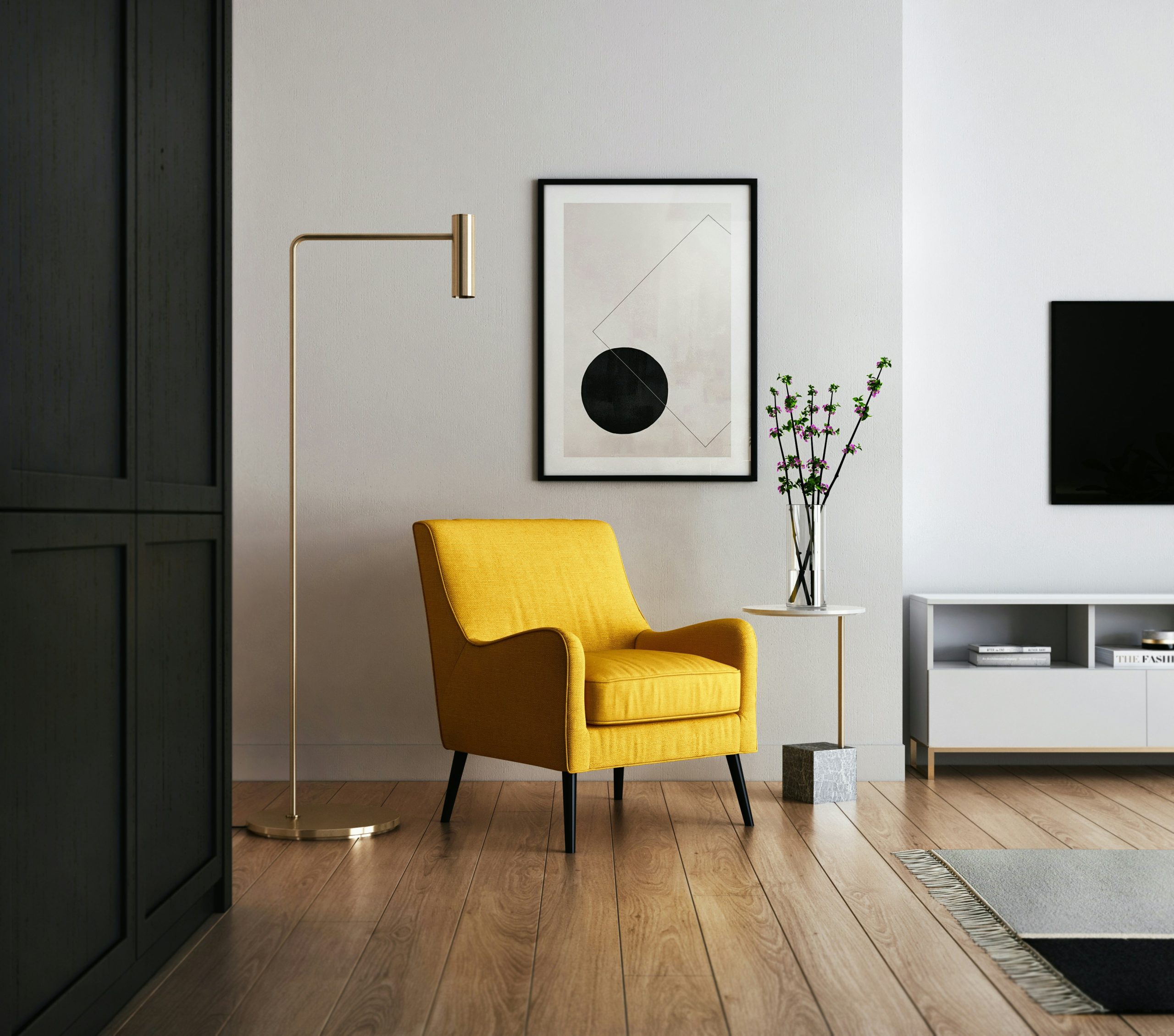Imagine walking into a room that perfectly reflects your personality, tastes, and preferences without ever having to lift a finger. This futuristic concept is now closer to reality with the emergence of Collov AI in the realm of interior design. Gone are the days of endless hours spent browsing through catalogs and swatches, as this innovative technology promises to revolutionize how we envision and create our living spaces. From selecting color schemes to choosing furniture layouts, Collov AI empowers users to bring their dream interiors to life with just a few clicks – but what implications does this hold for the future of design? Let’s delve deeper into the world where artificial intelligence meets aesthetic innovation in an exploration of whether Collov AI truly represents the next frontier in interior design.
What is Collov AI: Explanation of the technology
Collov AI represents a cutting-edge application of artificial intelligence in the realm of interior design. This innovative technology utilizes machine learning algorithms to analyze vast amounts of data related to preferences, styles, and trends in interior design. By leveraging this deep understanding of aesthetic choices and functional requirements, Collov AI can offer personalized design recommendations that are tailored to individual needs and tastes.
One of the key features that sets Collov AI apart is its ability to simulate virtual room designs in real-time, allowing users to visualize various layouts and color schemes before finalizing their decisions. Moreover, Collov AI continuously learns from user feedback and interactions, refining its suggestions over time to better match evolving preferences. With its seamless integration of advanced technology and human creativity, Collov AI has the potential to revolutionize the way we conceptualize and realize interior spaces.

Benefits of Using Collov AI: Efficiency and creativity
Collov AI offers a groundbreaking solution to the world of interior design by merging efficiency with creativity. By harnessing AI technology, designers can streamline their workflow, automate repetitive tasks, and allocate more time to focus on innovative design concepts. With Collov AI’s assistance in generating ideas and suggesting solutions based on data-driven insights, designers can explore new creative possibilities and push the boundaries of their imagination.
Furthermore, Collov AI revolutionizes the collaboration process by facilitating seamless communication between team members and clients. This enhanced connectivity leads to smoother project management, faster decision-making processes, and ultimately accelerates the overall design timeline. The ability of Collov AI to analyze vast amounts of information quickly provides designers with valuable knowledge and inspiration that may have otherwise been overlooked, thus enriching the creative journey significantly.
How Collov AI Works: Process and applications
Collov AI operates on a multifaceted process that combines cutting-edge technology with the creativity and vision of interior designers. The initial step involves gathering information from clients through preferences, budget constraints, and style inspirations. This data is then fed into the AI system, where complex algorithms analyze patterns and trends to generate personalized design suggestions. What sets Collov AI apart is its ability to adapt and learn from feedback provided by users, continuously refining its recommendations for more accurate results.
The applications of Collov AI extend far beyond traditional interior design services. From home renovations to commercial spaces, this innovative tool can streamline the design process, saving time and costs while ensuring a cohesive aesthetic. Additionally, Collov AI empowers individuals with limited knowledge or resources in interior design to explore creative possibilities and make informed decisions about their living or working environments. Its user-friendly interface makes it accessible to a wide range of users seeking to enhance their spaces with professional guidance and expertise at their fingertips.

Case Studies: Successful implementations in real projects
One notable case study showcasing successful implementation in real projects involves a luxury hotel chain that utilized AI technology to enhance guest experience. By analyzing customer preferences and behavior patterns, the hotel was able to personalize services and recommendations, resulting in increased guest satisfaction and loyalty. This innovative approach not only elevated the overall guest experience but also provided valuable insights for future marketing strategies.
In another case, a leading e-commerce platform integrated AI algorithms into its recommendation system, significantly boosting sales and improving customer retention rates. By analyzing user browsing history, purchase patterns, and demographic data, the platform was able to tailor product recommendations with remarkable accuracy. This successful implementation not only improved the user experience but also demonstrated how AI can drive business growth through personalized recommendations tailored to individual preferences.
These case studies highlight how successful implementations of AI in real projects can lead to tangible benefits such as enhanced customer experiences, increased sales revenue, and improved operational efficiency. By leveraging AI technology effectively, businesses across various industries have the opportunity to transform their operations and stay ahead in an increasingly competitive market landscape.
Challenges and Limitations: Ethical concerns and constraints
In the realm of using AI in interior design, ethical concerns and limitations play a crucial role in shaping its future trajectory. One of the primary challenges lies in ensuring that AI algorithms are designed and implemented with transparency and fairness, to prevent bias and discrimination in design decisions. Additionally, issues surrounding data privacy and security raise questions about the use of personal information gathered by AI systems to inform design choices.
Moreover, as AI continues to evolve and integrate into the field of interior design, there is a growing need for regulations and guidelines to govern its usage ethically. Designers must grapple with the ethical implications of relying on AI algorithms to create personalized spaces for clients, balancing efficiency with human creativity and empathy. Moving forward, an ongoing dialogue between designers, technologists, ethicists, and policymakers will be essential in navigating these complex ethical concerns while harnessing the full potential of AI in transforming interior design practices.

Future Prospects: Integration and expansion possibilities
As we look towards the future of Collov AI and its potential integration and expansion, one exciting prospect lies in its ability to collaborate with augmented reality technology. By combining AI interior design capabilities with AR visualization tools, users could experience virtual room makeovers in real-time. This fusion has the potential to revolutionize how we envision and create our living spaces.
Furthermore, the possibility of integrating Collov AI with smart home devices opens up a realm of possibilities for automated interior design solutions. Imagine a home where your AI designer communicates seamlessly with your smart lighting system or thermostat to create the perfect ambiance based on your preferences and mood. This interconnected ecosystem points towards a future where our living spaces adapt and evolve according to our changing needs effortlessly.
In terms of expansion, Collov AI could explore partnerships with furniture manufacturers to offer personalized recommendations based on individual preferences and styles. By tapping into vast databases of furniture catalogues, this collaboration could provide users with tailored suggestions that align perfectly with their aesthetic sensibilities. Furthermore, expanding into commercial spaces like hotels or offices could showcase the versatility of Collov AI in transforming various environments beyond residential settings.
Conclusion: The potential impact of Collov AI
In conclusion, the potential impact of Collov AI on interior design is profound. By utilizing cutting-edge artificial intelligence algorithms, Collov AI has the capability to revolutionize how spaces are designed and transformed. Its ability to analyze vast amounts of data quickly and efficiently can lead to more personalized and tailored design solutions for individuals, businesses, and even entire communities.
Furthermore, Collov AI can empower designers by providing them with valuable insights and suggestions that they may not have considered otherwise. This technology opens up new possibilities for creativity and innovation in the field of interior design, pushing boundaries and redefining conventional practices. As we embrace the integration of AI in design processes, we are witnessing a paradigm shift towards a more efficient, sustainable, and user-centric approach to creating spaces that truly resonate with people’s needs and aspirations.
Used to write about games and gaming in general, but has since switched to testing and writing about web development software. Still plays a lot of games, just for the fun of it.
